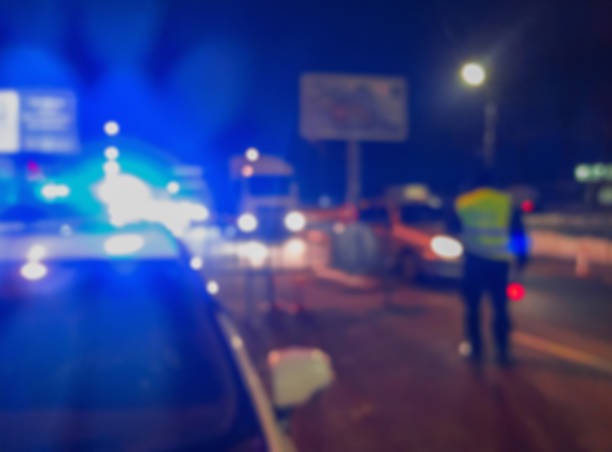Antioch, TN — A wave of anger, grief, and mounting demands for accountability has surged through the Antioch community following the revelation of the troubled past of 17-year-old Solomon Henderson, the student responsible for the tragic shooting at Antioch High School on January 22, 2025. The shooting claimed the life of 16-year-old classmate Dayana Escalante before Henderson took his own life, leaving behind a school in mourning and a community reeling.
The heartbreak and confusion that initially gripped the city have since transformed into outrage after recently unsealed juvenile court records revealed a disturbing pattern of violent behavior, neglect, and systemic failure. These records — kept sealed until last week under Tennessee’s juvenile privacy laws — expose a cascade of missed warnings, unheeded red flags, and institutional oversights that many believe could have prevented the deadly incident.
Troubled Past Comes to Light
According to court documents, Henderson had been involved in at least four documented incidents of violent behavior over the past three years, including an assault on a fellow student, threats against a teacher, and a prior weapons charge for carrying a knife onto school grounds. There were also multiple reports from child welfare workers detailing neglect and suspected abuse at home, alongside allegations that Henderson had expressed suicidal ideation during counseling sessions — information that, according to the records, was never fully shared with school officials.
Henderson’s mental health history paints an even more troubling picture. He had been evaluated twice by juvenile psychologists for anger management issues and depressive episodes, yet was never placed in long-term treatment or monitoring. Despite a 2023 recommendation for placement in a residential behavioral health facility, funding constraints and bureaucratic hurdles led to the recommendation being shelved.
“This Was Preventable,” Says Community
The release of this information has enraged parents and teachers who feel left in the dark — not only about Henderson’s background but about the broader shortcomings in the school and juvenile justice systems meant to protect students. At a community forum held on Friday night, emotions ran high as dozens gathered to demand answers from local officials, the school board, and the juvenile justice system.
“This was preventable,” said Maria Alvarez, a parent of a sophomore at Antioch High. “We are not just mourning Dayana. We are mourning the trust we placed in a system that let both of these children down.”
Teachers, too, voiced frustration. One educator, speaking anonymously, revealed that staff had raised concerns about Henderson’s erratic behavior as recently as December 2024, yet felt pressure not to escalate the issue due to privacy restrictions and a lack of clear protocols.
“We are constantly told to support students, but we are not given the tools or the information to do it safely,” the teacher said.
School District Under Fire
The Metropolitan Nashville Public Schools (MNPS) has come under intense scrutiny for its handling of Henderson’s presence at Antioch High School. Despite multiple interventions and disciplinary actions on his record, he was allowed to remain enrolled without a formal behavioral intervention plan in place at the time of the shooting.
Superintendent Dr. Adrienne Battle released a statement acknowledging the community’s grief and vowing an internal review but stopped short of admitting institutional fault.
“We are devastated by this tragedy. The safety of our students is our top priority, and we are committed to evaluating every aspect of our policies to ensure such an incident can never happen again,” the statement read.
For many, the response was too little, too late.
Lawmakers Call for Reform
In the wake of the tragedy and the newly released court documents, several Tennessee lawmakers are calling for sweeping reforms to how schools and juvenile justice agencies communicate and collaborate. State Senator Brenda Gilmore (D-Nashville) announced plans to introduce legislation that would require mandatory sharing of violent juvenile records with school districts, as well as increased funding for school-based mental health professionals.
“We cannot keep siloing our systems and expect kids to be safe,” Gilmore said during a press conference Saturday. “We need transparency, accountability, and resources — now.”
Others, however, are cautioning against reactionary policies that could further stigmatize troubled youth.
Civil rights organizations like the ACLU have urged lawmakers to balance public safety with privacy rights. “While this tragedy is heartbreaking, we must avoid knee-jerk laws that could lead to over-criminalization and surveillance of vulnerable students,” said ACLU attorney Nia Wallace.
A Community in Mourning
Meanwhile, Antioch continues to mourn the loss of Dayana Escalante, described by friends and teachers as a kind, ambitious student with dreams of becoming a nurse. Vigils have been held every night for the past week outside the high school, where students leave flowers, candles, and handwritten notes by her photo.
“She was the heart of this school,” said classmate Jalen Moore. “This never should have happened to her.”
The tragedy has reignited national conversations about school safety, mental health, and gun access. Henderson obtained the firearm used in the shooting from his uncle, a convicted felon who was illegally in possession of the weapon, according to Metro Nashville Police. Investigations into how the gun ended up in the teenager’s hands are ongoing.
As the Antioch community grapples with this painful moment, many are calling not just for justice — but for change.
“There were so many chances to intervene,” said Pastor Samuel Dorsey, who spoke at Escalante’s memorial service. “Now we have to ask ourselves: How many more children must die before the system starts listening?”
Would you like help drafting a letter or petition for community members to present to local officials?

